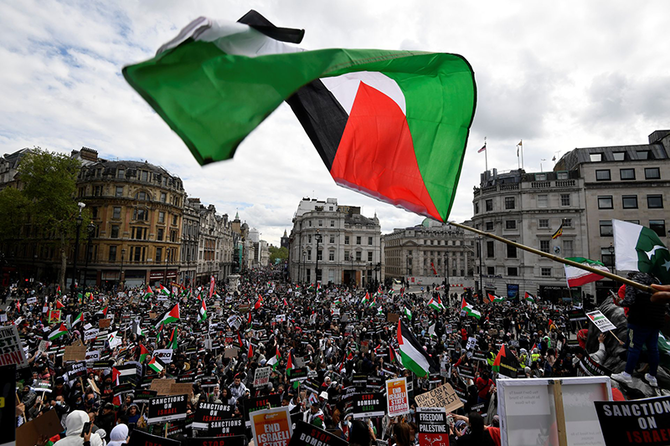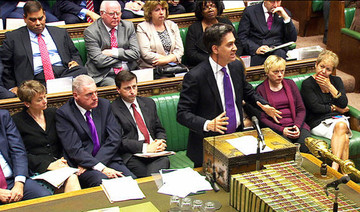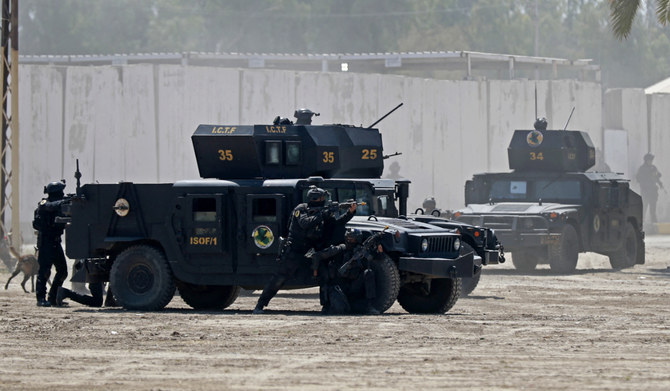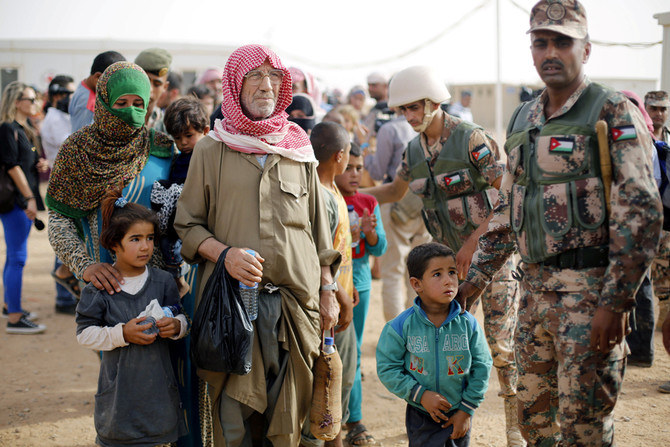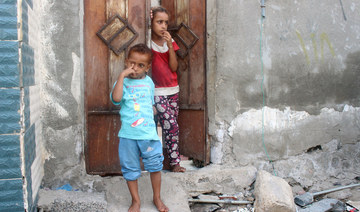LONDON: British MPs on Monday debated implementing two petitions that call for economic sanctions against Israel and for the UK government to recognize the state of Palestine.
The petitions garnered over 100,000 signatures each, which according to British law means they must be considered for debate in Parliament.
Politicians from both sides of the aisle urged the government to push forward the two-state solution by recognizing the state of Palestine, but the majority of MPs that took part in the debate rejected the idea of sanctions against Israel.
Chairing the debate, Labour’s Katherine McKinnell said: “I share the deeply held concerns for the plight of the Palestinian people. Colleagues who have visited the region will know that the desire of the Palestinians to live in dignity and in peace in a state of their own is unmistakable.
“Their aspiration for self-determination is one that we should wholeheartedly support. It’s right for the Palestinian people, and it’s right for the Israeli people.”
She added: “However, I don’t believe that sweeping sanctions of the kind proposed by the second petition would bring the prospect of a two-state solution any closer.”
That petition, which currently has over 386,000 signatures, said: “The government should introduce sanctions against Israel, including blocking all trade, and in particular arms.”
It added that Israel’s “disproportionate treatment of Palestinians and settlements that are regarded by the international community as illegal are an affront to civilised society.”
James Cleverly, the UK’s minister for the Middle East and North Africa, reiterated the government’s position on economic sanctions against Israel, saying: “While we don’t hesitate to express disagreement with Israel whenever we feel it necessary, we’re firmly opposed to boycotts or sanctions against Israel.”
Cleverly also rejected the second petition’s demand — that Britain immediately recognize a sovereign Palestinian state.
“There have, of course, been many calls over the years for recognition of Palestinian statehood,” he said.
“The UK government position is clear: The UK will recognize a Palestinian state at a time when it best serves the object of peace. Bilateral recognition in itself cannot and will not end the occupation,” he added.
“The UK government continues to believe that without a negotiated peace agreement, the occupation and the problems that come with it will continue.”
Cleverly did, however, criticize Israel’s continued assaults on Palestinian homes in the occupied territories.
“The UK position on evictions, demolitions and settlements is longstanding, is public, and has been communicated directly to the government of Israel. That is: We oppose these actions,” he said.
Steve Baker, a Conservative MP, said he had made a “mistake” by deprioritizing the Israeli-Palestinian issue during a period of relative calm.
“The problem, of course, is that the conflict hadn’t gone away and has since returned with a ferocity,” he added.
Baker urged the government to actively pursue a two-state solution, a policy that he and other MPs pointed out has been endorsed by the government without ever being actively pursued.
“I voted to recognize the state of Palestine,” he said. “I think if we’re serious about a two-state solution, it’s important that this Parliament and parliaments elsewhere, governments elsewhere, recognize the state of Palestine.”
Labour’s Naz Shah said she had a message for Israel’s new Prime Minister Naftali Bennett: “Those who support you in the Knesset (Parliament), the mood music is changing, the world is waking up to Israel’s actions, and all those who want to see lasting peace in the region know that to achieve such peace we must end the occupation, injustice and oppression. This starts with recognizing a viable Palestinian state.”
She warned Bennett: “We won’t be silent in pushing for Israel to be tried in the International Criminal Court for war crimes if any more Palestinian blood is unjustly spilled under a perverted interpretation of a right to self-defense.”



